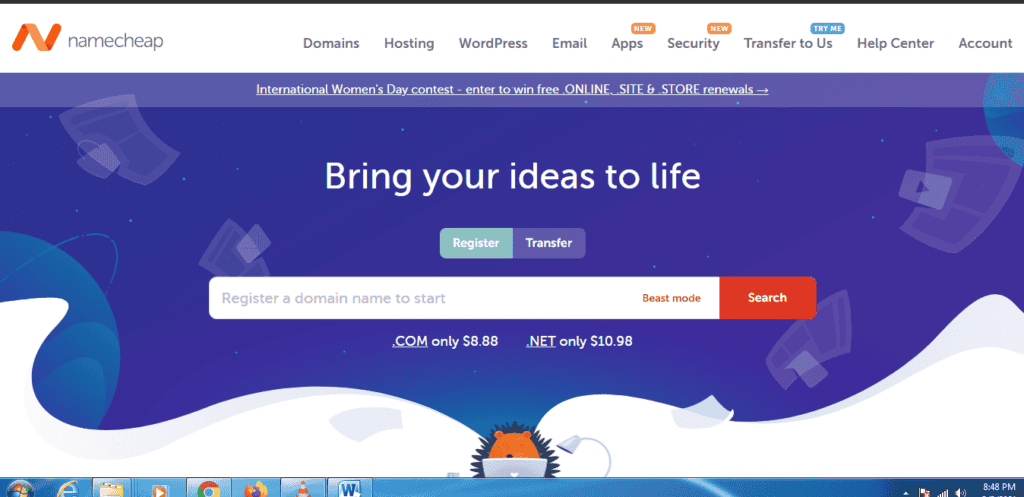One of the most important tools you’ll need to help your small business make a solid online presence is a website. For any small business, a website can perform several functions such as improving brand exposure and credibility, engaging clients with useful information, advertising, sales of goods and services (ecommerce) as well as to receive and display reviews and comments from clients/customers.
Building a small business in Canada today is quite easy, unlike what was obtained a decade or so ago. With the help of modern technologies, you can make your business more profitable by having your own website. Before creating a website for your Canadian small business, you should consider these factors:
1. Nature of Service Rendered
The type of service your small-scale business renders is a very important factor to consider before creating your website. This will help you decide on what type of website to get and also help you determine the appropriate tools to effectively manage such website.
Different kinds of websites exist such as blogs, ecommerce sites, business directory sites, and catalog or brochure sites. An ecommerce website is most suitable for retailers and those who are willing to sell any of their products online.
However, there are no strict rules guiding what kind of website to have. You can decide on which will work best for you and your website can even feature two or more of these types as individual web pages under a broader website. For example, your website can contain an ecommerce page and a blog all at once.
To be able to choose the appropriate website, you should decide if you’re strictly interested in ecommerce or blogging alone or will love to incorporate both, or will even love to be an affiliate marketer.
2. User Interface Design and General Website Aesthetics
With the world becoming a global village, people are becoming more comfortable with getting products and services online. This implies your website is going to be the first point of contact most people will have with your business. It is important therefore to keep your website as appealing as possible to visitors through the rich use of visuals, texts, and colors.
Your website’s homepage or landing page is very important in provoking emotions in visitors that will get them to buy from you. It should therefore be able to tell your brand’s story and provide necessary details. Customize your website using your brand’s logo and theme colors. Make use of friendly texts and eye catching visuals. Your site map should be simple and call to actions should be placed at very strategic and conspicuous places.
Generally, your website should contain these important web pages:
• Homepage: This should contain a brief description of your business, why you exist, products or services rendered, physical location, as well as your social media handles. It may or may not contain testimonials and customer reviews.
• About Page: This contains more explicit details of yourself, your business, and your employees. Here, you can incorporate snapshots of your employees and work environment to help your site visitors get a glimpse of how you go about your daily activities.
• Ecommerce/Products/Services Page: With this page, you can showcase your products and/or services alongside information such as price, features, pros, cons, and warranty.
• Testimonial/Review Page: Build the trust of your site visitors by showing reviews from past customers or clients.
• Contact Page: This should contain contact information like email address, telephone number, and links to all social media accounts.
• FAQs Page: Provide answers to possible questions your site users might want to ask so they better understand how your brand works.
• Privacy, Terms of Use and Conditions Page: Let your site users know how much of their information you have access to and what you’re doing with such information. You should also provide them with your brand’s terms and conditions. Your refund policy for example.
All of these features can be easily incorporated into your website by using the right content management tools and by employing the services of knowledgeable web designers.

3. Content
The web page aesthetics and sitemap are not enough, you will also need to provide lots of highly informative contents on your website to keep your site users constantly engaged with your website. This means you’ll have to do a bit of research on your potential or already existing customers to determine their needs and the trends they follow as they apply to your product or service.
Your job will be to provide your customers with informative content whilst also driving sales through the use of storytelling and sales driving copies. However, while your central aim is to increase traffic or sales, your content must not become too sales driven or your site users will get bored.
As a small business owner, you might want to create your website content yourself or employ the service of a professional content manager. Whichever way you go, your content must be skillfully created, precise, helpful, and engaging.
4. Domain Name
Your small business domain name is the World Wide Web equivalent of your brand’s physical address in Canada. Before choosing a suitable location for your business in any of the Canadian Provinces and Territories, you should have probably considered things like proximity to your customers, distance from competitors alongside other factors. For your website, your domain name is equally important and should be carefully chosen.
Pick a domain that is easy to remember and that customers can easily identify your brand with. A domain name needs to be carefully looked up to know if it’s not already taken. As a tip, your domain name should not necessarily be the same as your registered business name. It should however contain keywords that speak about your business and will further aid your SEO rankings.
Choosing a domain name may sometimes be hectic as most domain names are already taken. You should try to make your domain name something very specific and unique. If however, you’re quite particular about a domain name, you should find out if the current owner will be willing to sell it.

5. CMS and Other Website Tools
Creating a website has been made easy with different website creation and maintenance tools. A Content Management System (CMS) is a software application used for creating digital content. A CMS is effective for website creation and management and requires little or no technical expertise. Each CMS offers unique features which will suit different website needs. Generally, Content Management Systems are budget friendly and cheaper compared to the use of coding for website creation and management.
Popular examples of CMS are WordPress, Squarespace, and Wix. The factors to consider when choosing a CMS are diversity of templates and plugins, ease of use, flexibility, extensibility, and security strength.
There exist also other website tools such as ecommerce platforms like Shopify and WooCommerce; and general maintenance tools like Google Analytics and Bing Webmaster Tools to monitor site traffic. You should consider what tools will serve your website best and have them installed and within close reach.
6. Web Hosting Service
After all internal considerations, it is important to look out for web hosting companies and make a thorough research before making your pick.
There are a variety of web hosting companies in Canada. Consider those that have a strong reputation and offer speed, security, scalability, and support. For easier site management, you can consider hosting companies that also register and manage domain names.
As a business owner based in Canada, it is better to make use of the services of a web hosting company whose server is located in Canada as well. This is to ensure your website loads quickly and that every of the private information entered on your site is properly secured as contained in the Personal Information Protection and Electronic Documents Act (PIPEDA). You should also consider web hosting costs and check for available tariffs before signing up for a particular hosting plan.
7. Budget
After considering every other factor, it is also essential to work with a budget while creating a website for your small business. The cost of hosting and creating websites in Canada is relatively cheap and most web hosting companies and Content Management Systems (CMS) offer plans over a wide range of tariffs which can be renewed on a monthly or annual basis. Having your website hosted by a Canada based web hosting company will also save you costs from currency exchange rates so you get more value for a little fee.
Sometimes, a domain name would have been taken and will need to be bought from the current owner. This will imply extra costs and this factor should be considered if your chosen domain name has already been taken.
Conclusion
Whether you’re a shoe retailer, gift shop owner, or a small scale drug dispenser, all of these factors should be carefully considered before creating your small business Canadian website. While the process of website creation and maintenance may not be so easy, making use of these tips will help you achieve excellent results and will also boost your small business’ online presence.





